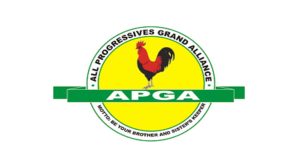The local stock market commenced the second quarter of 2025 on a subdued note, closing in the red on the first trading day of April. The All-Share Index retreated by 0.14%, settling at 105,515.99 points, down from 105,660.64 points recorded in the previous session. This decline translated to a N90.70 billion loss in market capitalization, which dipped by the same 0.14% to close at N66.17 trillion. This downturn signaled a cautious start to the new quarter, potentially reflecting lingering anxieties over macroeconomic factors and global market trends. The negative opening day performance suggested a possible continuation of existing market pressures, although the relatively small decline hinted at the possibility of a quick recovery in the following sessions, depending on emerging market dynamics.
Trading activity on the day was notably muted, with both transaction volume and value showing significant declines. Total volume shrank by 19.99%, while the total value of transactions plummeted by a steeper 44.41%. This contraction in trading activity signaled a decrease in investor participation, possibly reflecting a wait-and-see approach adopted by market players in anticipation of clearer economic signals. Despite the reduced trading volume and value, the number of executed deals saw a significant surge, increasing by 30.52% to reach 17,286 transactions. This discrepancy between the number of deals and the declining volume and value suggests that while trading activity was more frequent, individual transaction sizes were considerably smaller. This could indicate a shift towards smaller, more cautious investments, rather than large-scale trading.
Market breadth, a key indicator of overall market sentiment, painted a picture of waning investor confidence. The number of declining stocks outnumbered the advancing stocks, with 33 stocks recording losses compared to 25 stocks that posted gains. This negative breadth reinforced the overall bearish sentiment prevailing in the market. The relatively narrow difference between gainers and losers, however, left room for potential shifts in sentiment depending on subsequent market developments and corporate news flow.
Among the top gainers, UPDCREIT led the pack with a 10.00% increase, followed closely by Africa Prudential and VFD Group, both registering a 9.96% gain. Union Dicon and May & Baker also recorded substantial gains of 9.28% and 6.17%, respectively. These gains, concentrated within a select group of stocks, suggest sector-specific positive news or company-specific developments that bucked the overall market trend. Conversely, the top decliners were led by UAC Nigeria with a 10.00% drop, followed by UPL (-9.95%), SUNU ASSURE (-9.92%), CONHALL PLC (-9.78%), and Learn Africa (-9.64%). These losses, mirroring the gains in magnitude, suggest a day of volatile price swings for certain stocks, possibly influenced by specific company news or sector-specific concerns.
Sectoral performance largely mirrored the overall market sentiment, with most sectors closing in negative territory. The insurance sector experienced the most significant decline, losing 2.61%, followed by the oil & gas sector (-0.49%), the commodity sector (-0.17%), and the consumer goods sector, which edged down marginally by 0.01%. The banking sector provided a glimmer of hope, registering a modest gain of 0.07%, while the commodities sector remained relatively flat. The varied performance across sectors suggests that sector-specific factors, rather than broad macroeconomic influences, played a more dominant role in shaping individual sector returns. The relative resilience of the banking sector possibly reflected positive investor sentiment stemming from recent positive financial results announced by some banks.
Looking back at the preceding week, the local bourse had managed to break free from a four-week bearish run, demonstrating resilience and the potential for a quick turnaround. The market had seen the bulls take control during three of the five trading sessions, fueled primarily by encouraging announcements from prominent banking stocks. This positive momentum from the previous week, however, failed to carry over into the new quarter’s opening day, highlighting the volatility and unpredictable nature of the stock market. The strong performance of banking stocks in the previous week suggests that sector-specific news and corporate earnings releases can exert a significant influence on market direction, potentially overriding broader market trends.
In conclusion, the first trading day of the second quarter presented a mixed picture for the local stock market. While the overall market trend leaned bearish with declining indices and trading activity, positive performances from select stocks and the banking sector offered a counterpoint. The surge in the number of deals alongside shrinking trading volume and value indicated a shift towards smaller, more cautious investment strategies, possibly reflecting a wait-and-see approach among investors. The contrasting performances within different sectors underscored the importance of company-specific fundamentals and sector-specific news flow in driving individual stock and sector returns. The market’s ability to rebound in the prior week from a prolonged bearish streak, fueled by positive news from the banking sector, suggests that despite the subdued opening, the market holds the potential for rapid recovery depending on emerging economic data, corporate performance, and broader market sentiment.













